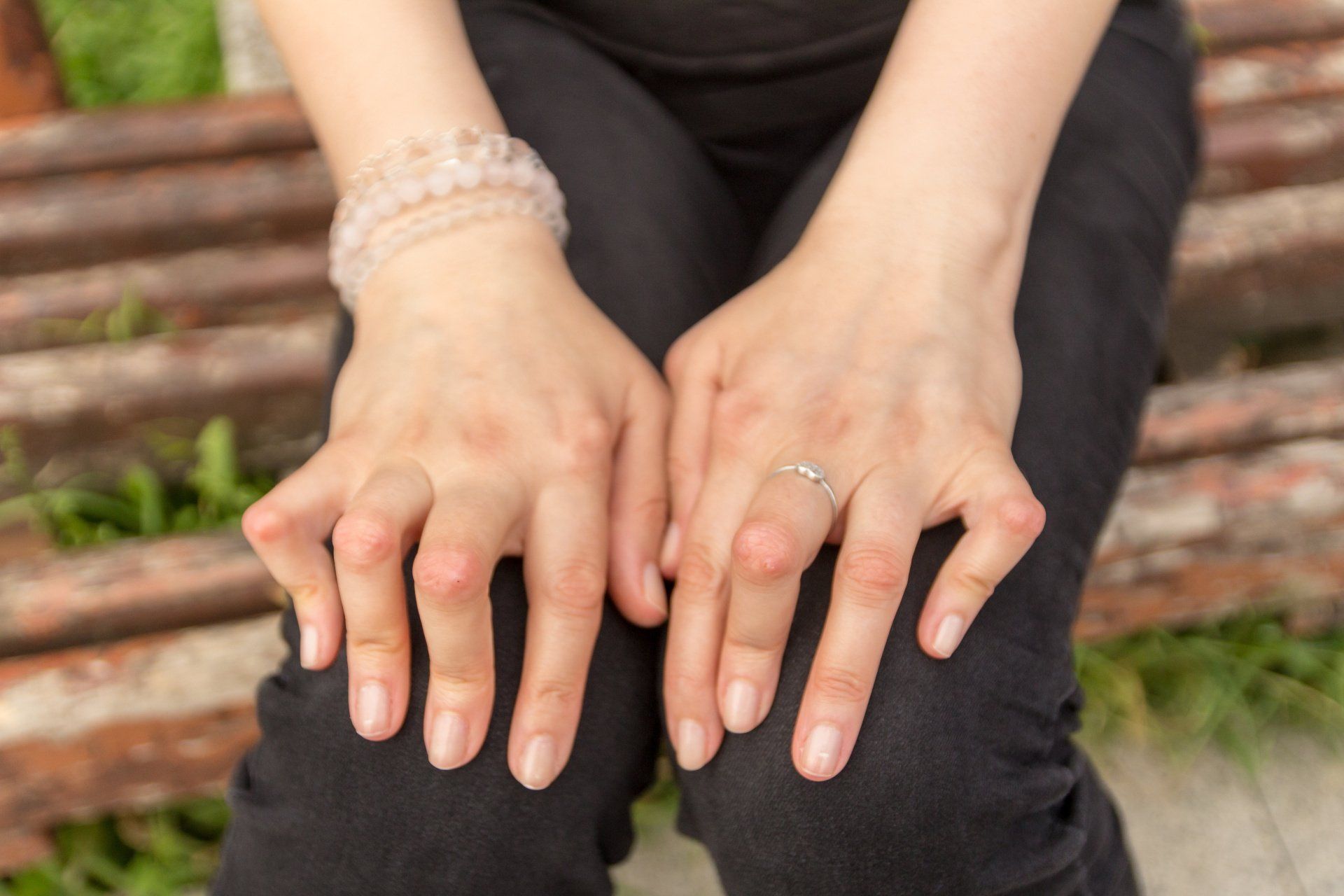Rheumatoid Arthritis Treatment in Baton Rouge
What is Rheumatoid Arthritis?
Arthritis is a blanket term that covers over 100 specific types of arthritis which can each impact individuals in their own, unique ways. Sufferers of arthritis have damage to one or more joints of the body, resulting in symptoms that can often be painful and debilitating. In the case of rheumatoid Arthritis (RA), the body’s own immune system attacks healthy cells in the joints, resulting in inflammation and pain.
What causes Rheumatoid Arthritis?
Rheumatoid arthritis (RA) is a type of autoimmune disease. In this form of disease, the body’s immune system mistakenly recognizes parts of the body as foreign and attacks just as it would a dangerous virus or bacteria. There are many different types of autoimmune diseases affecting many different parts of the body. In the case of RA, the joints are impacted.
What are the risk factors for developing Rheumatoid Arthritis?
While we don’t know all of the reasons or circumstances that can lead to the development of RA, we do know that there are certain risk factors which can increase the likelihood of its development. These risk factors include:
- Age – RA patients span all ages. However, it is most commonly observed in those over the age of 60.
- Sex – Women are three times more likely than men to be diagnosed with RA, while women who have never given birth are at an even higher risk.
- Genetics – Scientists have pinpointed particular genes that can impact the development of RA. These genes are known as human leukocyte antigen (HLA) class II genotypes. People with these genes are not only more likely to develop RA, but their RA is also likely to be worse.
- Smoking – Smoking, as well as early exposure to second-hand smoke have been shown to increase the likelihood of RA. Likewise, those with RA who continue to smoke can make the disease worse.
- Obesity – The more extra weight a person carries, the higher their risk for RA.
However, in addition to all the factors that can increase the risk of RA, there is one shown to decrease the risk. Women who breastfeed can actually move their risk in the opposite direction and help protect themselves against the disease.
What are the symptoms of Rheumatoid Arthritis?
Patients with RA have flares when symptoms get worse and periods of remission when symptoms improve. With time, flares can last longer, become more frequent, and be associated with worsening symptoms. Among the most common signs associated with the disease are:
- Pain, tenderness, stiffness, and swelling of the joints that lasts for an extended period of at least six weeks
- Joint stiffness that is particularly bad first thing in the morning
- Onset of joint symptoms in smaller joints such as those in the hands or feet first
- Having the same joints on both sides of the body affected
- Weakness, fatigue, and low-grade fever
How is Rheumatoid Arthritis diagnosed?
As RA progresses, so too does joint damage. In order to minimize its impact on the body, it is important that RA be diagnosed as quickly as possible. This means patients should seek treatment as soon as symptoms become apparent. To reach a diagnosis, a doctor who specializes in the treatment of arthritis will conduct a full medical history and physical examination. This will allow them to better understand symptoms and potential risk factors. Then, they can conduct blood tests to check for the presence of antibodies and inflammation associated with RA and imaging tests to provide visual confirmation of any bone erosion within the joints.
How is Rheumatoid Arthritis treated?
Patients who undergo treatment for RA during its earlier stages will have better outcomes. Early and aggressive treatment of the condition can prevent further damage to the joints and provide relief from symptoms. Most commonly, treatment includes the use of a class of drugs known as disease-modifying antirheumatic drugs (DMARDs) to block joint-damaging inflammation. A second class of drugs known as biological response modifiers may also be used.
In addition to drug treatments for RA, patients are also encouraged to live a healthy lifestyle that includes physical activity, weight maintenance, and regular visits with their physician.
Rheumatoid Arthritis Specialists in Baton Rouge
A rheumatologist is the key team member in treating RA. However, the orthopedic manifestations of RA are regularly managed by all physicians at The Bone and Joint Clinic.
RELATED READING



